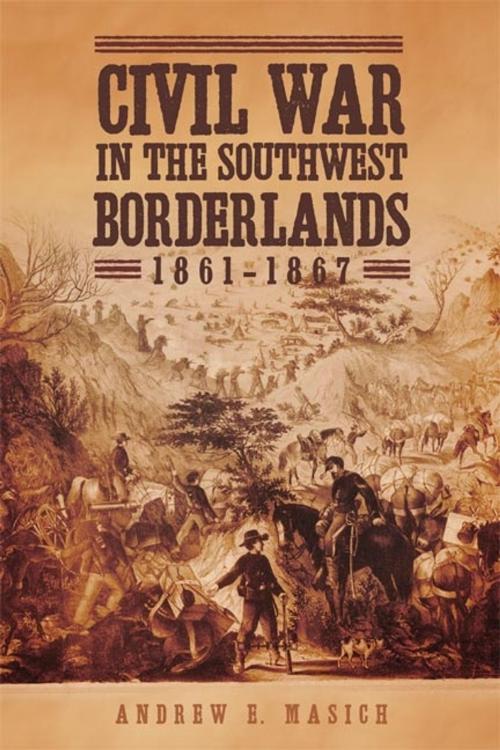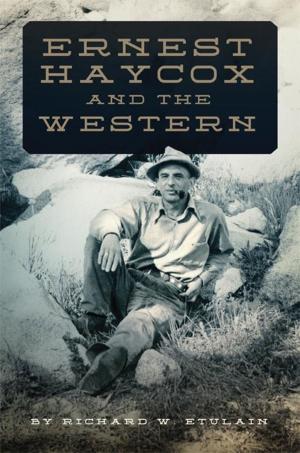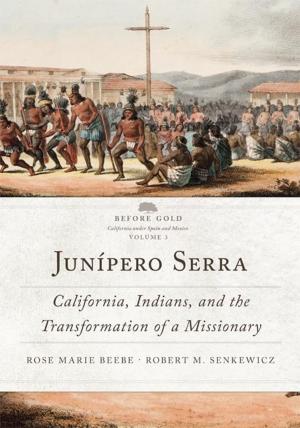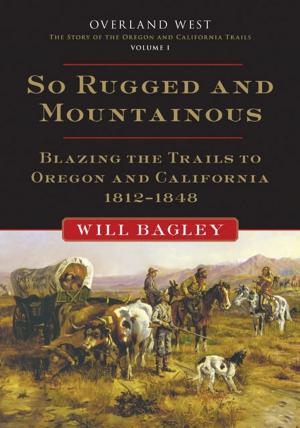Civil War in the Southwest Borderlands, 1861–1867
Nonfiction, History, Americas, United States, Civil War Period (1850-1877)| Author: | Andrew E. Masich | ISBN: | 9780806158532 |
| Publisher: | University of Oklahoma Press | Publication: | February 3, 2017 |
| Imprint: | University of Oklahoma Press | Language: | English |
| Author: | Andrew E. Masich |
| ISBN: | 9780806158532 |
| Publisher: | University of Oklahoma Press |
| Publication: | February 3, 2017 |
| Imprint: | University of Oklahoma Press |
| Language: | English |
Still the least-understood theater of the Civil War, the Southwest Borderlands saw not only Union and Confederate forces clashing but Indians, Hispanos, and Anglos struggling for survival, power, and dominance on both sides of the U.S.-Mexico border. While other scholars have examined individual battles, Andrew E. Masich is the first to analyze these conflicts as interconnected civil wars. Based on previously overlooked Indian Depredation Claim records and a wealth of other sources, this book is both a close-up history of the Civil War in the region and an examination of the war-making traditions of its diverse peoples.
Along the border, Masich argues, the Civil War played out as a collision between three warrior cultures. Indians, Hispanos, and Anglos brought their own weapons and tactics to the struggle, but they also shared many traditions. Before the war, the three groups engaged one another in cycles of raid and reprisal involving the taking of livestock and human captives, reflecting a peculiar mixture of conflict and interdependence.
When U.S. regular troops were withdrawn in 1861 to fight in the East, the resulting power vacuum led to unprecedented violence in the West. Indians fought Indians, Hispanos battled Hispanos, and Anglos vied for control of the Southwest, while each group sought allies in conflicts related only indirectly to the secession crisis. When Union and Confederate forces invaded the Southwest, Anglo soldiers, Hispanos, and sedentary Indian tribes forged alliances that allowed them to collectively wage a relentless war on Apaches, Comanches, and Navajos. Mexico’s civil war and European intervention served only to enlarge the conflict in the borderlands. When the fighting subsided, a new power hierarchy had emerged and relations between the region’s inhabitants, and their nations, forever changed.
Masich’s perspective on borderlands history offers a single, cohesive framework for understanding this power shift while demonstrating the importance of transnational and multicultural views of the American Civil War and the Southwest Borderlands.
Still the least-understood theater of the Civil War, the Southwest Borderlands saw not only Union and Confederate forces clashing but Indians, Hispanos, and Anglos struggling for survival, power, and dominance on both sides of the U.S.-Mexico border. While other scholars have examined individual battles, Andrew E. Masich is the first to analyze these conflicts as interconnected civil wars. Based on previously overlooked Indian Depredation Claim records and a wealth of other sources, this book is both a close-up history of the Civil War in the region and an examination of the war-making traditions of its diverse peoples.
Along the border, Masich argues, the Civil War played out as a collision between three warrior cultures. Indians, Hispanos, and Anglos brought their own weapons and tactics to the struggle, but they also shared many traditions. Before the war, the three groups engaged one another in cycles of raid and reprisal involving the taking of livestock and human captives, reflecting a peculiar mixture of conflict and interdependence.
When U.S. regular troops were withdrawn in 1861 to fight in the East, the resulting power vacuum led to unprecedented violence in the West. Indians fought Indians, Hispanos battled Hispanos, and Anglos vied for control of the Southwest, while each group sought allies in conflicts related only indirectly to the secession crisis. When Union and Confederate forces invaded the Southwest, Anglo soldiers, Hispanos, and sedentary Indian tribes forged alliances that allowed them to collectively wage a relentless war on Apaches, Comanches, and Navajos. Mexico’s civil war and European intervention served only to enlarge the conflict in the borderlands. When the fighting subsided, a new power hierarchy had emerged and relations between the region’s inhabitants, and their nations, forever changed.
Masich’s perspective on borderlands history offers a single, cohesive framework for understanding this power shift while demonstrating the importance of transnational and multicultural views of the American Civil War and the Southwest Borderlands.















